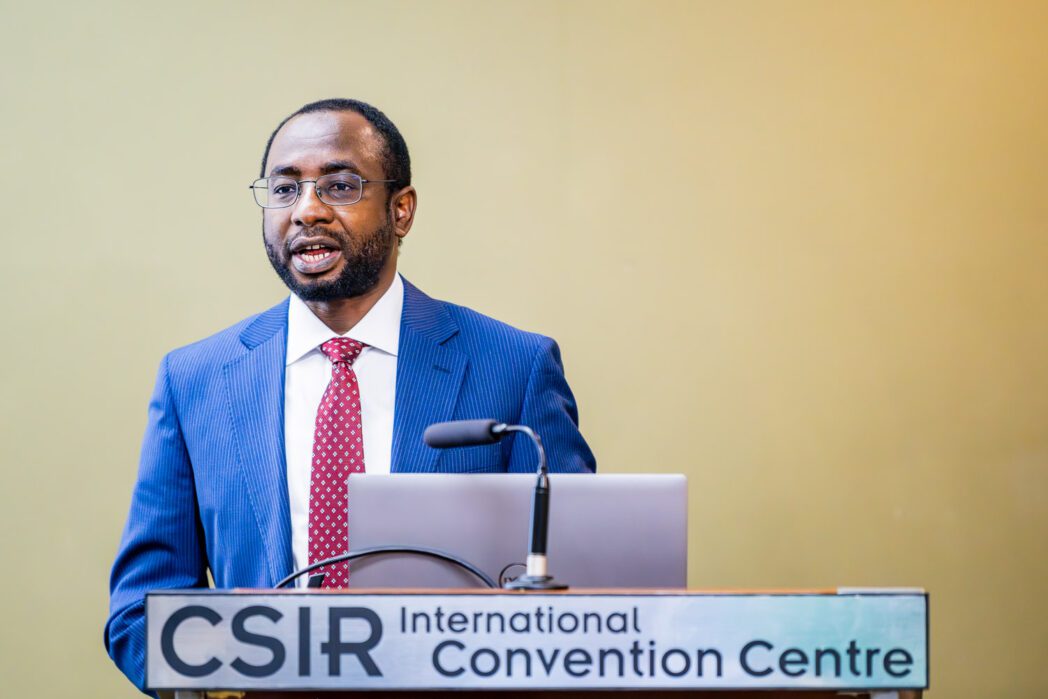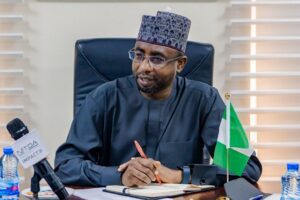


ICEGOV24: Researchers drive digital solutions to boost economic diversification
To further enhance Nigeria’s economic diversification, five Nigerian researchers showcased innovative digital solutions at the 17th International Conference on the Theory and Practice of E-Government (ICEGOV2024) in Pretoria, South Africa. The international forum, organised by the United Nations University and UNESCO, brought together over 336 participants from 49 countries to explore the role of e-governance in addressing global challenges.
Representing Nigeria at the conference, Director-General of the National Information Technology Development Agency (NITDA),. Kashifu Inuwa Abdullahi, reaffirmed the country’s dedication to technological advancements in line with President Bola Ahmed Tinubu’s Renewed Hope Agenda.
Abdullahi noted that the research presented by Nigerian scholars fits within the government’s larger vision to use technology to promote economic diversification and enhance governance structures.
“This conference presents an opportunity for Nigeria to further its goal of becoming a leader in the digital governance space. The researchers here today reflect the nation’s commitment to innovation, and their work holds the potential to drive significant changes in how we approach governance and economic growth,” Abdullahi stated.
He highlighted that only 85 out of 157 research papers were accepted, a reflection of the competitive nature of the event and the calibre of Nigeria’s submissions.
The showcased research projects focus on various aspects of digital governance, targeting challenges within public service delivery, economic inclusion, and small business growth. The innovations have the potential to streamline public infrastructure, improve broadband access, and support the growth of Nigeria’s economy through technological modernisation.
Among the standout contributions was Hassana Asuku’s paper, “Bridging the Broadband Gap,” which delves into the widening digital divide in Nigeria’s rural communities. Asuku’s research proposes a multidimensional strategy to enhance broadband access in underserved areas, a critical step toward improving economic inclusion and civic engagement. With the government focused on expanding the digital economy, her work could serve as a roadmap for closing the broadband gap across Nigeria.
Adeyinka Patrick Adewumi focused on “Digital Competency in the Public Sector,” highlighting the pressing need to improve digital skills among civil servants. Adewumi presented a targeted model that integrates training programs and infrastructural investments to boost digital transformation across government institutions. In a rapidly digitising world, this research speaks directly to Nigeria’s ambition to modernise its public sector.
Dr. Agbali Mohammed explored the development of “Scalable Digital Public Infrastructure (DPI)” in Nigeria. His work addressed institutional barriers to adopting effective DPI solutions, proposing strategies for public-private partnerships and regulatory improvements. The implementation of scalable DPI could revolutionise Nigeria’s governance landscape, creating more efficient systems for service delivery and economic planning.
On the economic front, Dr. Tanimu Mukhtar Garba’s research introduced the Taxpoynt platform, a digital tax compliance tool aimed at simplifying tax processes for small and medium enterprises (SMEs). Given that SMEs form the backbone of Nigeria’s economy, Garba’s innovation has the potential to boost tax compliance and ease the burden of tax administration, encouraging broader economic participation from small business owners.
Dr. Salihu Dasuki Ibrahim’s work on ‘Citizens’ Freedoms in E-Governance’ explored how DPI can enhance citizen liberties by addressing challenges related to data privacy, ICT infrastructure, and digital rights. His research presents critical insights into the balance between digital governance and the protection of individual freedoms, a topic of increasing relevance in today’s digital age.
The participation of Nigerian researchers in ICEGOV2024 signals the country’s growing influence in the global digital governance landscape. With President Tinubu’s administration focused on leveraging technology to diversify the economy, these research contributions will likely play a key role in shaping the nation’s digital strategy moving forward.
Director-General Abdullahi reaffirmed NITDA’s commitment to supporting innovative research, ensuring that Nigeria remains at the forefront of digital advancements. “Our goal is to create an ecosystem that fosters innovation and positions Nigeria as a leader in e-governance, not just on the continent but globally,” he said.
As Nigeria continues its push for economic diversification, the digital solutions presented at ICEGOV2024 offer a glimpse into the future of governance and economic growth in the country, underscoring the critical role that technology will play in this transformation.



